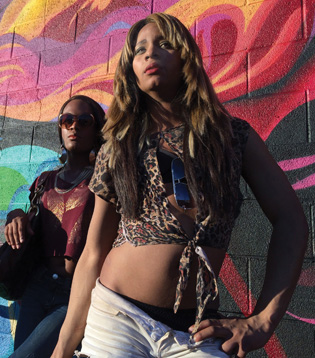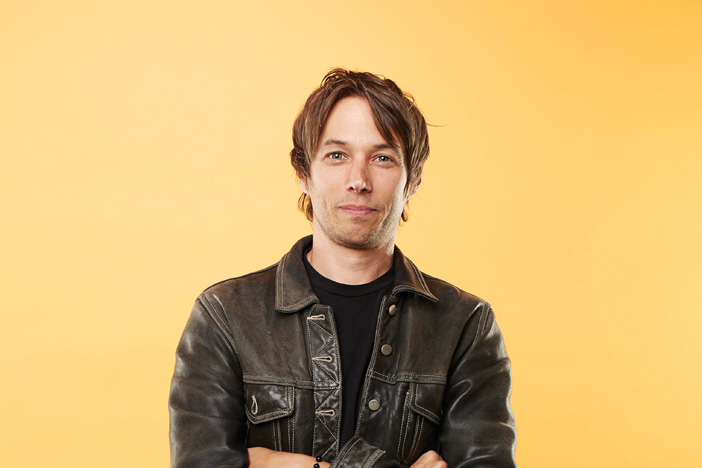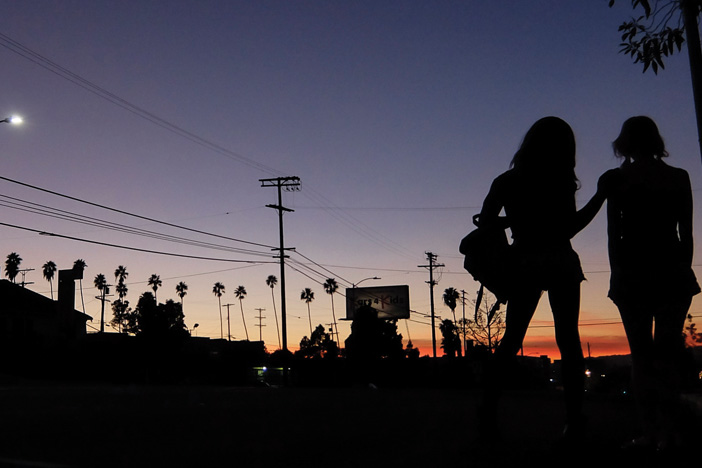Originally published in The L Magazine (July 6, 2015).
Sean Baker’s independent films feature protagonists you don’t normally see on screen: a Chinese delivery guy who sends money back home (Take Out), an elderly woman convinced she’s too old to drive to the store (Starlet), a Ghanaian immigrant who hawks designer knock-offs (Prince of Broadway). Baker’s latest, Tangerine, is about two transgender sex workers, Alexandra (Mya Taylor) and Sin-Dee (Kitana Kiki Rodriguez), who spend Christmas Eve hunting down Sin-Dee’s two-timing boyfriend on Santa Monica Boulevard. Though the stories sound like depressing social-realist works—in some ways that’s not entirely inaccurate—Baker’s work is infused with an infectious humor that brings out the best and worst in each character. Abuzz with positive reviews since its Sundance premiere, where it was revealed the film had been shot entirely on an iPhone 5s, Tangerine redefines contemporary American independent cinema. The film opens July 10 in New York.
Is making movies about marginalized people an important aspect of your filmmaking, and if so, where do you think that comes from?
It is important, but I’ve been trying to stay away from the self-analytical part of that, because I feel like I’ll become too conscious of it and it will affect my future work. These were communities I was personally interested in and drawn to because of my being such an outsider. I was interested from a very selfish point of view: to educate myself. I learned with some of the earlier films that immersing myself during the research process was an enriching experience. I’ve walked away with friends that are now hopefully life-long friends within communities where I would never have the opportunity to make friends. It’s hard to say exactly why. With Starlet it was actually because I was working on a television show (Greg the Bunny) in which we were casting adult film stars and I got to know them on a personal level. We hung out with them between takes and I was struck by the fact that their lives were ordinary just like mine, and pretty mundane. My perception was challenged and changed. I realized I wanted to tell a personal story that could apply to anybody. Because I wanted the film to not focus on the vocation or the clichés that we have with sex workers. Tangerine was a logical progression of that.
 What are some of things you learned from working with Mya and Kiki?
What are some of things you learned from working with Mya and Kiki?
In another interview you explain how you chose the narrative focus from anecdotes provided by Mya’s friends. Can you describe the process?
Mya and I would meet on a regular basis at a local Jack in the Box to hear her stories. She would bring friends and we’d meet them one by one. It wasn’t until she brought in Kiki, and I looked at the two of them and thought, oh my God, what a dynamic duo. They complement each other yet also contrast each other. They finish each other’s sentences. They set up jokes for one another and deliver punchlines. Visually, on a physical level they had such a striking dynamic. That was what made me say, “Moving forward, let’s think of this as a buddy movie, with these two as our lead characters.”
In your films, friends hold onto each other even if there’s been drama.
Right. In all four films, they’re isolated, marginalized people because of the way society shuns and alienates them. It’s an unfortunate state of affairs but they only have each other to support and rely on.
Would you shoot another film using an iPhone?
I don’t mean to be in any way negative—I really loved the experience and it was necessary for our budget constraints. However, I fall into the Nolan-and-Tarantino camp: I’m a lover of celluloid film and I dislike digital. I know that sounds weird coming from someone who shot a film on an iPhone. I’ve been trying to get my budgets raised for years so that I can shoot on film before it completely goes away.
You kept details of the iPhone shooting and the transgender sex worker characters a secret before the Sundance premiere. Why?
The iPhone was more of a secret than the fact that the leads were transgender. I was basing it on the way I would view a film that was shot on an iPhone. I’d probably walk in with reservations and assume the film looks a certain way. I read Twitter and Facebook posts saying that it’s a gimmick. Well it definitely was not a gimmick. It was a very organic way that it came about. At Sundance we didn’t want to affect they way people perceived the original screening. Of course now it’s out there, and I guess it’s part of the PR.
Being a white male making films about marginalized groups and experiences you’ve never had, do you ever find this problematic? You work with a collaborative crew from the ground up. But some will only see your name attached to Tangerine.
Some people won’t accept my work because I’m not part of these worlds. I can understand it even though I don’t agree with it. We’re into making narrative films, as long as we do it in a responsible and respectful way. Those words are important: respectful and responsible. We take our time to do research. With Prince of Broadway, it took us one year to work our way into the community and find that proper collaborator, and to ensure that whoever we’re working with is satisfied with the final product, that they felt that it represented their world correctly. With Mya and Kiki I encouraged as much collaboration as possible from the beginning. There was that trust that had to be gained. Mya told me, “I want you to show this world in the most realistic way possible. Show it for its brutal realism even if it’s not PC, even if people don’t want to look at this stuff. And number two, I want you to make this funny.” But even the style stems from the mutual collaboration, their advice and suggestions. In post-production Mya decided to wait for our cut. However, Kiki was very involved in post-production and gave us notes. At one point I think she saved the film. Near the end I threw on a music track in the Donut Time scene, and it made it into a farce. Kiki was the first person to tell me to take that out, and in hindsight I realized she was totally right.
Is comedy important to you?
I think humor will always be a part of my films because humor is a part of life. I find it in behavior, the little details. A movie that is pure drama is unrealistic. In the case of Tangerine, when I was doing research with the girls, every day was like going to a comedy show. They were like stand-ups, witty and fast. In this [community] I saw that these women use humor because they’re out on the street with these hardships. That was part of the decision to go further with the comedy, and to make a film that they could be entertained by.


